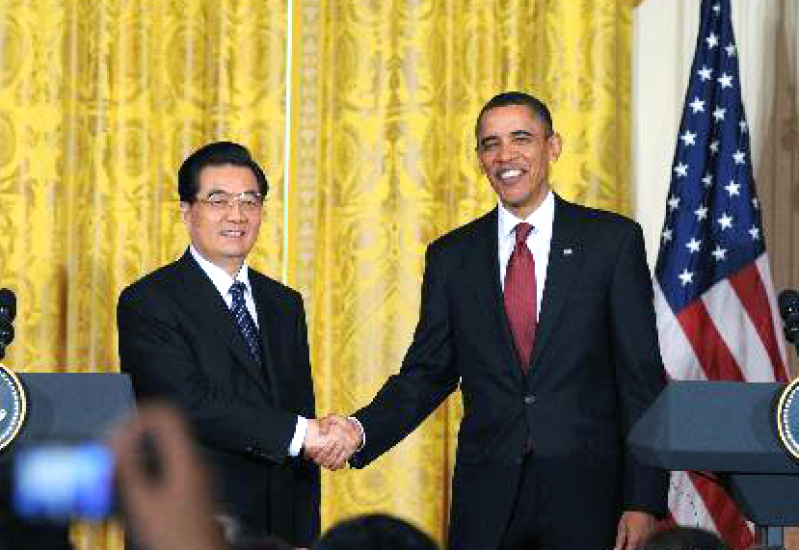
China President Hu Jintao’s visit to the United States has been in the international media spot light in the last couple of days. In a rare event, Hu and Obama answered questions from reporters of both United States and China media group at a joint press conference held on January 19.
Prior to entertaining any questions. Obama reaffirmed “America’s fundamental commitment to the universal rights of all people. That includes basic human rights like freedom of speech, of the press, of assembly, of association and demonstration, and of religion – rights that are recognized in the Chinese constitution.
“As I’ve said before, the United States speaks up for these freedoms and dignity of every human being, not only because it’s part of who we are as Americans, but we do because we believe that by upholding these universal rights, all nations, including China, will ultimately be more prosperous and successful.”
Obama also said he had been “very candid” with Hu about the human rights situation in China and admitted that the issue had sometimes been a “source of tension” between the two countries.
“I believe part of justice and part of human rights is people being able to make a living and having enough to eat and having shelter and having electricity,” he said.
“We welcome China’s rights. We just want to make sure that rise occurs in a way that reinforces international norms, international rules, and enhances security and peace as opposed to it being a source of conflict either in the region or around the world.”
Responding to a question on human rights raised by an Associated Press reporter, Hu said that he and Obama already met eight times, “Each time we met, we had an in-depth exchange of views in a candid manner on issues of shared interest and on issues toward each other’s concerns. And on the issues we have covered, we also discussed human rights.”
“China is always committed to the protection and promotion of human rights.
“China recognizes and also respects the universality of human rights. And at the same time, we do believe that we also need to take into account the different and national circumstances when it comes to the universal value of human rights.
“China is a developing country with a huge population, and also a developing country in a crucial stage of reform. In this context, China still faces many challenges in economic and social development. And a lot still needs to be done in China, in terms of human rights.
“We will continue our efforts to improve the lives of the Chinese people, and we will continue our efforts to promote democracy and the rule of law in our country. At the same time, we are also willing to continue to have exchanges and dialogue with other countries in terms of human rights, and we are also willing to learn from each other in terms of the good practices.
Hu also said that although there are disagreements between China and the United States on the issue of human rights, “China is willing to engage in dialogue and exchanges with the United States on the basis of mutual respect and the principle of non-interference in each other’s internal affairs. In this way, we’ll be able to further increase our mutual understanding, reduce our disagreements, and expand our common ground.”
According to many overseas media, Hu’s admittance that “a lot still needs to be done in China, in terms of human rights” was widely welcomed, but rights advocates are skeptical if his words carry any weight in terms of real change in the country.






